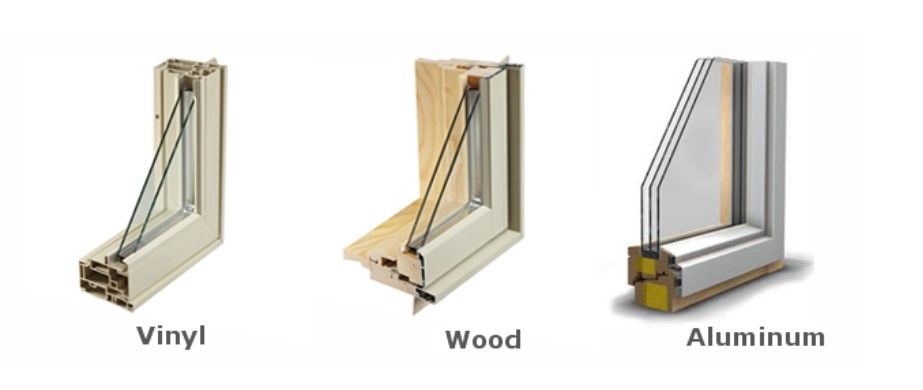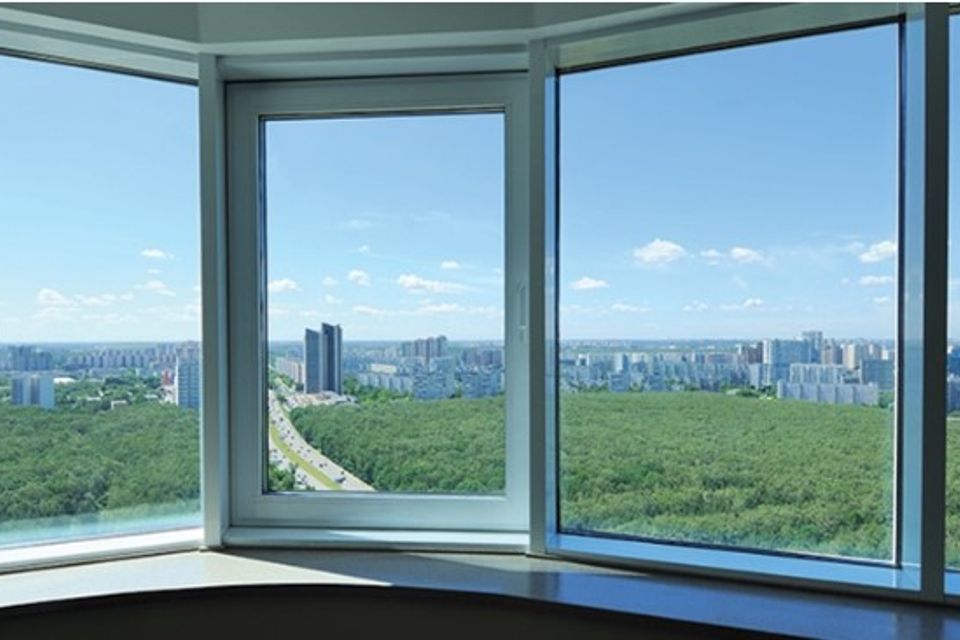
Not all windows and doors are created equal. The sleek glass entrance to a downtown Ottawa office building is designed very differently from the cozy bay window in your home. Whether you’re a homeowner or a business owner, understanding the differences between residential and commercial windows and doors helps you make informed decisions for your property.
Design and Function: Built for Different Purposes
Residential Windows and Doors
In homes, aesthetics and comfort come first. Residential windows come in styles like casement, picture, double-hung, or bay windows. Entry doors emphasize curb appeal, often with decorative panels or glass inserts. These products are designed for moderate traffic and to complement the overall look of the home.
Commercial Windows and Doors
Commercial windows focus on maximizing glass area, durability, and accessibility. Storefront doors, curtain wall systems, and large fixed glass panels create a sleek, professional appearance while withstanding high traffic. Features like push bars, auto-closers, and accessibility standards are common.
In homes, aesthetics and comfort come first. Residential windows come in styles like casement, picture, double-hung, or bay windows. Entry doors emphasize curb appeal, often with decorative panels or glass inserts. These products are designed for moderate traffic and to complement the overall look of the home.
Commercial Windows and Doors
Commercial windows focus on maximizing glass area, durability, and accessibility. Storefront doors, curtain wall systems, and large fixed glass panels create a sleek, professional appearance while withstanding high traffic. Features like push bars, auto-closers, and accessibility standards are common.

Materials: Vinyl for Homes, Aluminum for Business
Residential Materials
Ottawa homes typically use vinyl window frames, prized for energy efficiency and affordability. Wood frames are common in heritage or high-end homes, while fiberglass and composite options offer durability and modern design. Doors are often fiberglass or steel for insulation and security.
Commercial Materials
Aluminum dominates commercial window and door frames. Its strength allows for larger glass panels and it is non-combustible, a common requirement in commercial construction. Glass is often thicker, tempered, or laminated for safety and sound control.
As noted in industry sources like Budget Glass, aluminum frames are a standard for commercial projects, while vinyl and wood remain popular for residential use.
Ottawa homes typically use vinyl window frames, prized for energy efficiency and affordability. Wood frames are common in heritage or high-end homes, while fiberglass and composite options offer durability and modern design. Doors are often fiberglass or steel for insulation and security.
Commercial Materials
Aluminum dominates commercial window and door frames. Its strength allows for larger glass panels and it is non-combustible, a common requirement in commercial construction. Glass is often thicker, tempered, or laminated for safety and sound control.
As noted in industry sources like Budget Glass, aluminum frames are a standard for commercial projects, while vinyl and wood remain popular for residential use.
Performance: Energy and Structural Demands
Residential Performance
Energy efficiency is key. Residential windows must meet standards like Energy Star certification to help homeowners reduce heating and cooling costs. They are designed to manage moderate wind loads and typical household wear.
Commercial Performance
Commercial windows and doors face higher structural demands. Larger glass areas, higher buildings, and busy environments require frames that can withstand heavy wind loads and constant use. While energy performance is considered, structural integrity and safety often take priority.
Sound attenuation is also critical in commercial spaces like offices, with laminated glass often used to reduce noise.
Energy efficiency is key. Residential windows must meet standards like Energy Star certification to help homeowners reduce heating and cooling costs. They are designed to manage moderate wind loads and typical household wear.
Commercial Performance
Commercial windows and doors face higher structural demands. Larger glass areas, higher buildings, and busy environments require frames that can withstand heavy wind loads and constant use. While energy performance is considered, structural integrity and safety often take priority.
Sound attenuation is also critical in commercial spaces like offices, with laminated glass often used to reduce noise.
Code and Safety Considerations
Residential Building Codes
Windows in bedrooms must meet egress standards for safety. Glass near floors or doors may need to be tempered. Doors have specific width requirements for accessibility and energy efficiency per the Ontario Building Code.
Commercial Building Codes
Commercial properties face stricter code requirements. These include accessibility features like automatic doors, specific door hardware, fire-rated glass near property lines, and panic hardware on emergency exits. Permitting and engineering reviews are often required.
Windows in bedrooms must meet egress standards for safety. Glass near floors or doors may need to be tempered. Doors have specific width requirements for accessibility and energy efficiency per the Ontario Building Code.
Commercial Building Codes
Commercial properties face stricter code requirements. These include accessibility features like automatic doors, specific door hardware, fire-rated glass near property lines, and panic hardware on emergency exits. Permitting and engineering reviews are often required.
Installation Methods
Residential Installation
Windows are installed into wood-framed walls using nail flanges or clips, with sealing for weatherproofing. Doors are installed as pre-hung units, shimmed, and sealed by carpenters or window specialists.
Commercial Installation
Glaziers handle large storefront systems, curtain walls, and commercial doors. Installation may involve assembling framing on-site, anchoring to steel or concrete, and sealing systems to manage water and air infiltration. Specialized equipment like lifts or scaffolding is often required.
Windows are installed into wood-framed walls using nail flanges or clips, with sealing for weatherproofing. Doors are installed as pre-hung units, shimmed, and sealed by carpenters or window specialists.
Commercial Installation
Glaziers handle large storefront systems, curtain walls, and commercial doors. Installation may involve assembling framing on-site, anchoring to steel or concrete, and sealing systems to manage water and air infiltration. Specialized equipment like lifts or scaffolding is often required.
Cost Considerations
Residential windows and doors are generally more affordable per square foot, designed for mass production and individual unit replacement. Commercial systems, especially large glass facades or storefronts, are custom-designed and priced accordingly, reflecting their complexity and scale.

When Residential Meets Commercial
Some properties blur the lines. High-rise condos in Ottawa often use commercial-grade aluminum windows. Custom homes may incorporate commercial-style curtain walls for modern design. Multi-residential buildings combine both types.
At Advanced View, we offer tailored solutions for both residential and commercial needs.
At Advanced View, we offer tailored solutions for both residential and commercial needs.
Why Choose Advanced View for Residential or Commercial Projects
Our team understands the unique requirements of homes and businesses. Whether you need energy-efficient vinyl windows for your house or durable aluminum storefront doors for your Ottawa business, we can help. We ensure code compliance, proper installation, and stylish, functional results.
Project Example:
We recently completed a project for a boutique Ottawa hotel, supplying commercial aluminum windows for the lobby and vinyl windows for the guest suites — balancing performance, efficiency, and design.
Project Example:
We recently completed a project for a boutique Ottawa hotel, supplying commercial aluminum windows for the lobby and vinyl windows for the guest suites — balancing performance, efficiency, and design.
One Expert Team for Two Distinct Needs
From energy-efficient vinyl windows for homes to durable aluminum storefronts for Ottawa businesses, our team knows the specs, styles, and codes that matter.
Get a Free Consultation for Your Residential or Commercial Project!
Get a Free Consultation for Your Residential or Commercial Project!
Conclusion: The Right Products for the Right Space
Windows and doors must suit their environment. Homes demand energy efficiency and aesthetic appeal. Commercial spaces require strength, scale, and code compliance.
With Advanced View, Ottawa property owners get expert guidance and quality products for both residential and commercial projects.
With Advanced View, Ottawa property owners get expert guidance and quality products for both residential and commercial projects.
Contact Us Now!
Give us a call or send us a message using the form.
(613) 727-8174
(613) 727-8174
